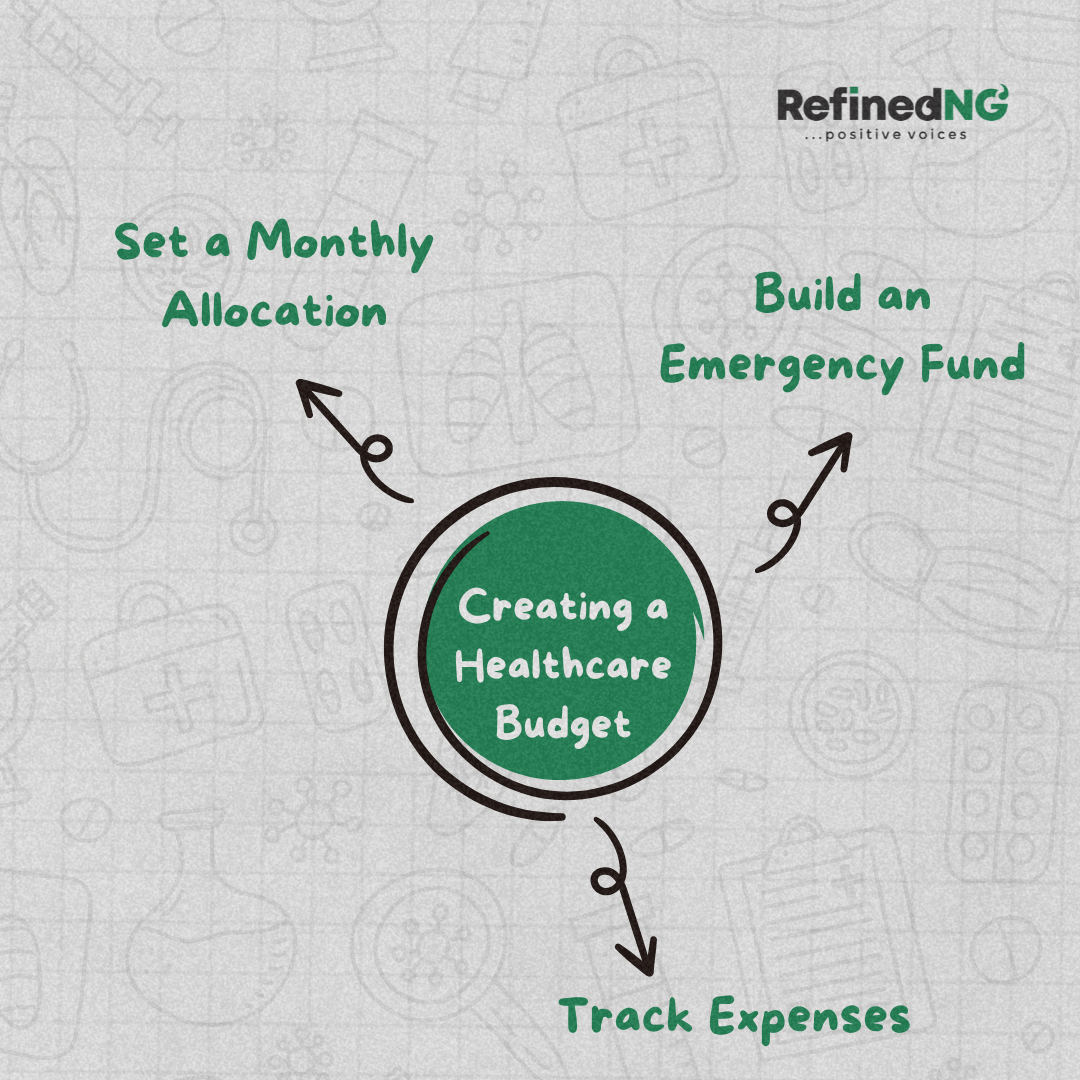
Imagine this: You’re finally saving up for that dream house or perhaps a business venture, and out of nowhere, a medical emergency strikes. Suddenly, your carefully laid plans are at risk. In a region where out-of-pocket healthcare expenses are common, budgeting for healthcare is not just prudent—it’s essential.
This article will guide you through the steps to effectively plan for medical expenses, ensuring that your health and financial goals can coexist harmoniously.
Understanding the Importance of Healthcare Budgeting
Budgeting for healthcare is crucial for several reasons:
- Unexpected Costs: Medical emergencies can arise anytime, often when least expected.
- Financial Security: Proper budgeting ensures that health issues do not derail your finances.
- Access to Quality Care: Being financially prepared can provide access to better healthcare services.
In Nigeria and across Africa, where health insurance penetration is low, understanding how to manage medical expenses can significantly improve financial stability.
Assessing Your Current Healthcare Needs
Start by evaluating your current health status and needs:
- Medical History: Consider any chronic conditions or ongoing treatments.
- Family Health History: Be aware of any hereditary conditions that might require future medical attention.
- Routine Check-ups: Include the cost of regular health screenings and vaccinations.

This assessment provides a baseline for your healthcare budget, helping you anticipate and prepare for potential expenses.
Read: Smart Ways to Save on Health Care Costs in Africa
Estimating Potential Medical Expenses
Next, estimate the costs associated with your healthcare needs:
- Routine Care: Costs for annual check-ups, dental visits, and vision exams.
- Medications: Regular prescriptions and over-the-counter medications.
- Emergency Care: Potential expenses for unexpected medical emergencies.
- Specialist Visits: Costs for seeing specialists or undergoing special treatments.
Use past medical bills as a reference point, and don’t forget to factor in inflation and potential increases in healthcare costs.
How To Create a Healthcare Budget

With your estimates in hand, it’s time to create a healthcare budget:
- 1. Set a Monthly Allocation: Based on your estimates, allocate a specific monthly amount for healthcare expenses.
- 2. Build an Emergency Fund: Set aside funds specifically for medical emergencies. Aim for at least three to six months’ worth of healthcare expenses.
- 3. Track Expenses: Keep a detailed record of all healthcare-related expenditures. This will help you adjust your budget as needed.
Consider using budgeting apps that can help track and manage these expenses effectively.
Exploring Health Insurance Options
Health insurance can significantly reduce the burden of medical expenses:
- Private Health Insurance: Explore different plans that cover a broad spectrum of medical services.
- Employer-Sponsored Insurance: If available, take advantage of health insurance provided by your employer.
- National Health Insurance Scheme (NHIS): In Nigeria, NHIS offers various health insurance packages. Research and select a plan that suits your needs.
While premiums might seem like an additional expense, the financial protection health insurance provides is invaluable.
Read: Insurance: The Financial Safety Net
Utilizing Community and Government Resources

Take advantage of community and government resources:
- Free Clinics and Health Camps: Participate in community health initiatives that offer free or low-cost medical services.
- Government Subsidies: Look for government programs that provide subsidies for medical expenses.
- These resources can help reduce out-of-pocket costs, making healthcare more affordable.
Preventive Healthcare: An Investment in Your Future
Investing in preventive healthcare can reduce long-term medical costs:
- Healthy Lifestyle: Maintain a balanced diet, exercise regularly, and avoid harmful habits like smoking.
- Regular Screenings: Early detection of health issues through regular screenings can prevent costly treatments later.
- Vaccinations: Ensure you and your family are up-to-date on all recommended vaccinations.
Preventive measures not only improve your quality of life but also help in managing healthcare expenses effectively.
Planning for medical expenses might seem daunting, but with a strategic approach, it’s entirely manageable. By assessing your needs, estimating costs, creating a budget, exploring insurance options, and utilizing available resources, you can ensure that healthcare costs don’t derail your financial goals.
